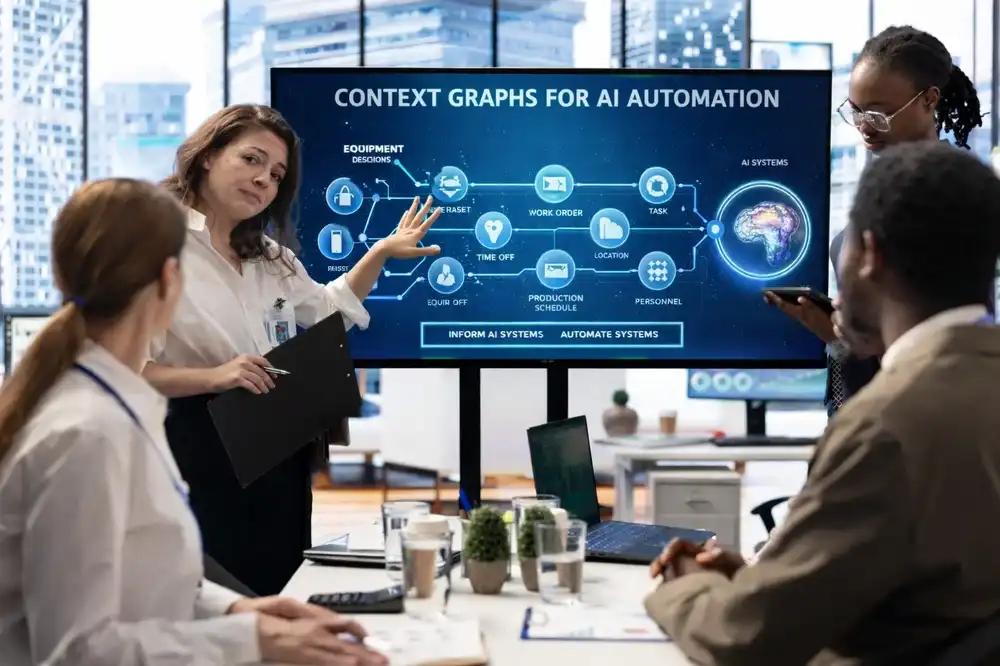Financial services have always been data-heavy, compliance-driven, and risk-sensitive. Yet in an era where transactions happen in milliseconds, even the most advanced automation systems are starting to fall short. Today, the real transformation is happening with AI Agents in Finance intelligent, autonomous systems capable of reasoning, learning, and executing tasks with minimal human input.
From loan processing automation to fraud detection and compliance monitoring, AI Agents are rapidly becoming the backbone of next-generation financial operations, not just doing work faster but doing it smarter.
The Financial Sector’s Next Leap: From Automation to Autonomy
Most financial institutions have already adopted automation, including RPA bots, rule-based workflows, and traditional AI models. But these systems remain reactive. They execute commands, not goals.
AI Agents, however, represent a step change. They are autonomous AI systems in finance designed to understand intent, make decisions, and continuously learn.
| Traditional Automation | AI Agents |
| Executes predefined tasks | Understands objectives and decides how to achieve them |
| Needs constant human supervision | Operates independently with governance rules |
| Limited learning capability | Continuously learns from outcomes |
| Single-process focus | Cross-functional decision-making |
This leap from automation to autonomy marks the shift from systems that simply do things to systems that think, adapt, and collaborate.
Takeaway: The financial enterprise of the future won’t be automated; it will be autonomous.
Why AI Agents Are Game-Changers for Financial Operations
Three converging forces are driving the rise of AI-powered financial operations:
- Rising transaction complexity – Millions of microtransactions, real-time credit scoring, and global payment networks require intelligent oversight.
- Regulatory pressure – Compliance rules are changing faster than systems can be updated.
- Evolving fraud patterns – Scammers use AI; banks must respond with intelligence that’s just as adaptive.
That’s where Finance AI Agents come in. These agents combine reasoning, planning, and continuous learning to operate within and across financial workflows.
They don’t just flag anomalies; they analyze context, collaborate with other agents, and decide the next best action, whether that’s approving a loan, escalating a risk, or flagging potential fraud.
Quote: “The financial institution of tomorrow will run on autonomous intelligence, not just automated processes.”
AI Agents in Loan Processing and Credit Evaluation
Loan processing has traditionally been slow, manual, and error-prone. Human underwriters juggle multiple documents, evaluate credit scores, verify employment, and ensure compliance.
AI Agents for Financial Services now make it possible to fully automate and even optimize this process.
Here’s how Loan Processing Automation works with AI Agents:
- Data Intake Agent collects applicant data from multiple sources such as forms, income proofs, and external APIs.
- Credit Scoring Agent evaluates risk using AI models trained on historical repayment behavior.
- Compliance Agent ensures every approval follows internal policy and regulatory frameworks.
- Communication Agent interacts with customers, updating them in real time about application status.
Mini caselet:
A mid-size regional bank deployed AI Agents to handle loan origination and underwriting. Within six months, loan approval times dropped by 60%, and customer satisfaction rose by 25% due to faster, more transparent updates.
Takeaway: AI Agents eliminate bottlenecks in loan processing, accelerating decisions while maintaining audit-ready compliance.
AI Agents for Fraud Detection and Risk Monitoring
Financial fraud is evolving at a pace that manual teams simply can’t match. In 2025, global financial fraud losses are projected to exceed [STAT: $50 billion, source, 2025], and traditional detection systems miss subtle behavioral shifts that indicate new fraud types.
AI Agents for Fraud Detection change the game by continuously learning from transaction data and adapting to new threats in real time.
Here’s how a multi-agent system strengthens fraud defense:
The 3-Layer Fraud Defense Model
- Data Watcher Agent: Scans transactions, geolocation, and behavioral patterns to identify anomalies.
- Pattern Learner Agent: Continuously retrains fraud detection models on new patterns.
- Decision Agent: Prioritizes high-risk alerts, triggers escalations, or freezes accounts autonomously.
Example: A large payments platform implemented these agents and reduced false positives by 35%, freeing human analysts to focus on high-impact cases.
Takeaway: With AI-driven autonomy, fraud detection becomes faster, more precise, and less dependent on human triage.
Beyond Efficiency: Building Trust, Transparency, and Compliance
Financial institutions operate in a world of strict regulation. Every transaction, decision, and exception needs traceability. Traditional automation handles repetition; AI Agents handle accountability.
Autonomous AI systems in finance are designed with explainability layers so each action or decision has a transparent rationale. For example:
- Audit-Assist Agents generate time-stamped reasoning trails for regulators.
- Compliance Agents continuously monitor rule changes and auto-update workflows.
- Governance Agents ensure every AI action stays within organizational policy.
These features make AI Agents not only operationally powerful but also regulator-friendly.
Takeaway: In finance, autonomy must coexist with transparency, and AI Agents deliver both.
The Agentic Finance Framework: 5 Steps to Deploy AI Agents Effectively
Implementing AI Agents in Finance requires a structured approach. Here’s a five-step framework financial leaders can use to move from concept to execution:
Identify High-Friction Workflows
Start with processes that are slow, error-prone, or compliance-heavy such as loan origination, reconciliation, or fraud review.
Map Decision Loops
Document where human reasoning happens today. These are opportunities for agents to learn and act autonomously.
Integrate Data Fabric
Consolidate structured (e.g., transaction data) and unstructured (e.g., documents, chat logs) data so agents can reason holistically.
Govern and Monitor
Deploy agents with clear policies, escalation rules, and human-in-the-loop checkpoints.
Scale and Optimize
Continuously measure outcomes such as turnaround time, approval accuracy, and fraud detection rate, then refine the models.
Checklist: Is Your Organization Ready for Agentic Finance?
- Do you have integrated data systems?
- Are your AI models explainable and auditable?
- Is there executive sponsorship for automation scaling?
- Have you identified clear ROI metrics for AI initiatives?
Takeaway: Success with AI Agents isn’t about deploying technology; it’s about designing an intelligent operating model.
Real-World Momentum: How Leading Institutions Are Using AI Agents
AI Agents are already in motion across global finance:
- JPMorgan Chase uses autonomous systems for credit risk assessment and regulatory reporting.
- Goldman Sachs is experimenting with multi-agent frameworks to optimize portfolio management.
- Mastercard leverages AI-driven agents for fraud prevention across global payment networks.
- FinTech startups like Zest AI and Upstart use intelligent agents for more inclusive and data-driven lending.
Takeaway: Agentic adoption is no longer experimental; it’s strategic. Early adopters are setting new benchmarks for speed, trust, and compliance.
Key Outcomes AI Agents Deliver Across Financial Operations
| Impact Area | Outcome Delivered |
| Loan Processing | 60% faster approvals, 40% fewer manual reviews |
| Fraud Detection | 35% fewer false positives, faster intervention |
| Risk Management | Real-time scoring and mitigation |
| Compliance | Automated audit trails and adaptive governance |
| Customer Experience | Instant decisions, proactive updates |
| Operations | 30–50% reduction in back-office costs |
These measurable gains show why AI-powered financial operations are fast becoming a competitive differentiator in the banking and fintech space
Building an AI-Ready Finance Function: Strategic Considerations
Transitioning to AI-driven operations isn’t a plug-and-play move. Financial leaders must plan across technology, people, and governance dimensions.
Align AI Agent Strategy with Business Goals
Start where AI can directly impact KPIs such as customer onboarding, fraud loss reduction, or compliance cost savings.
Prioritize Human-AI Collaboration
AI Agents augment expertise, not replace it. Training staff to supervise, interpret, and improve agent outputs is key to sustainable success.
Vendor vs. In-House
Building custom AI agents provides control but demands advanced AI maturity. Partnering with AI agent development company accelerates time-to-value.
Conclusion: The Path to Autonomous Finance
The financial world is entering a new era of intelligent operations. From loan processing automation to AI in risk management and fraud detection, AI Agents are redefining how financial institutions operate faster, safer, and smarter.
Tomorrow’s financial enterprise won’t be powered by dashboards and manual approvals. It will be orchestrated by AI Agents that continuously learn, decide, and act, creating a living, breathing financial ecosystem that self-improves with every transaction.
Ready to unlock the future of finance? Connect with our AI experts to explore how AI Agents can revolutionize your financial operations.






